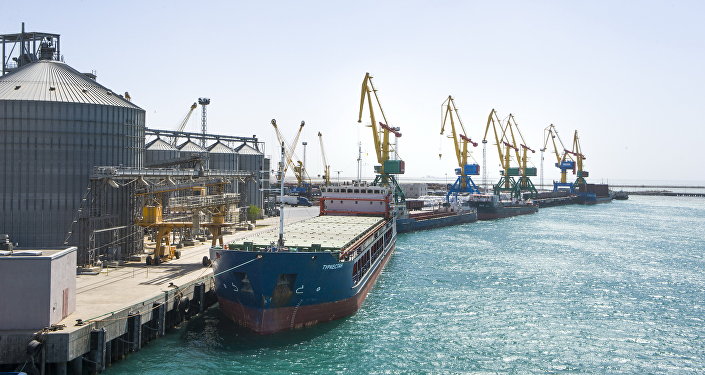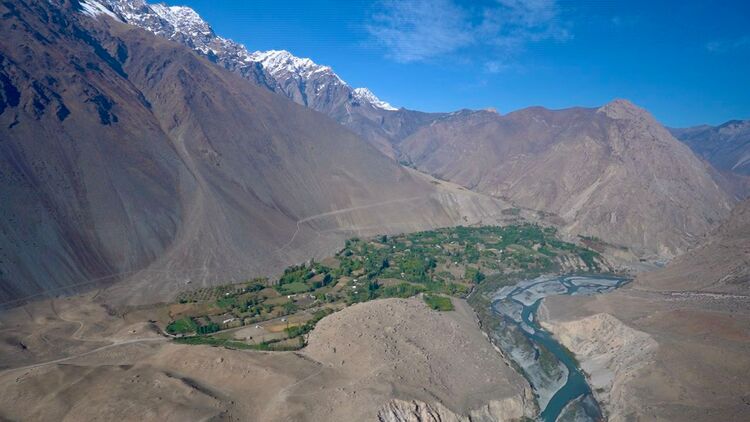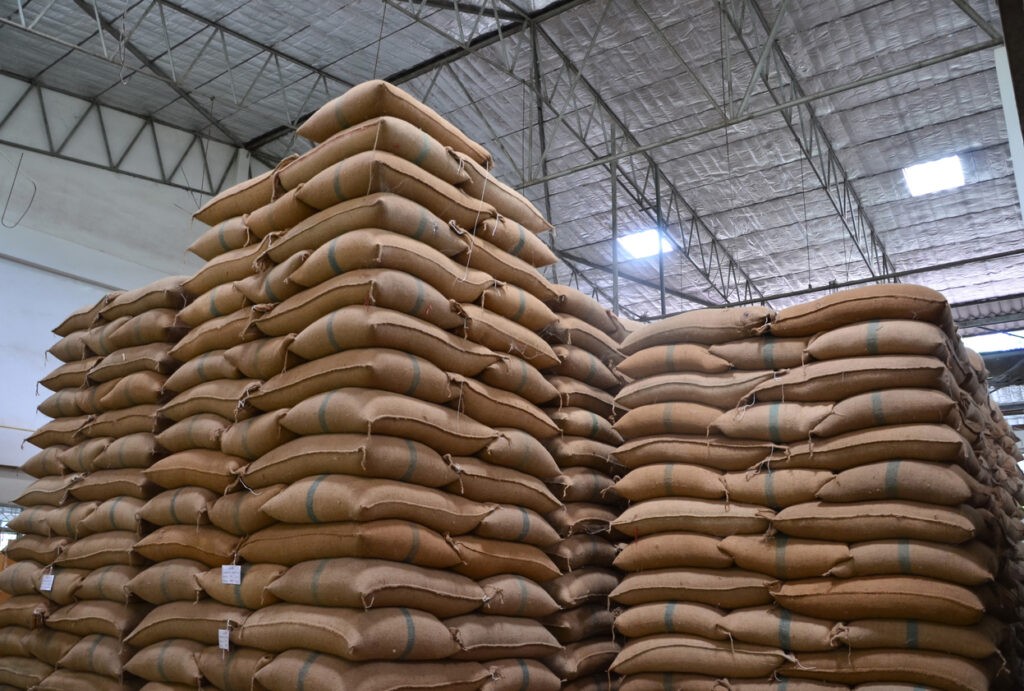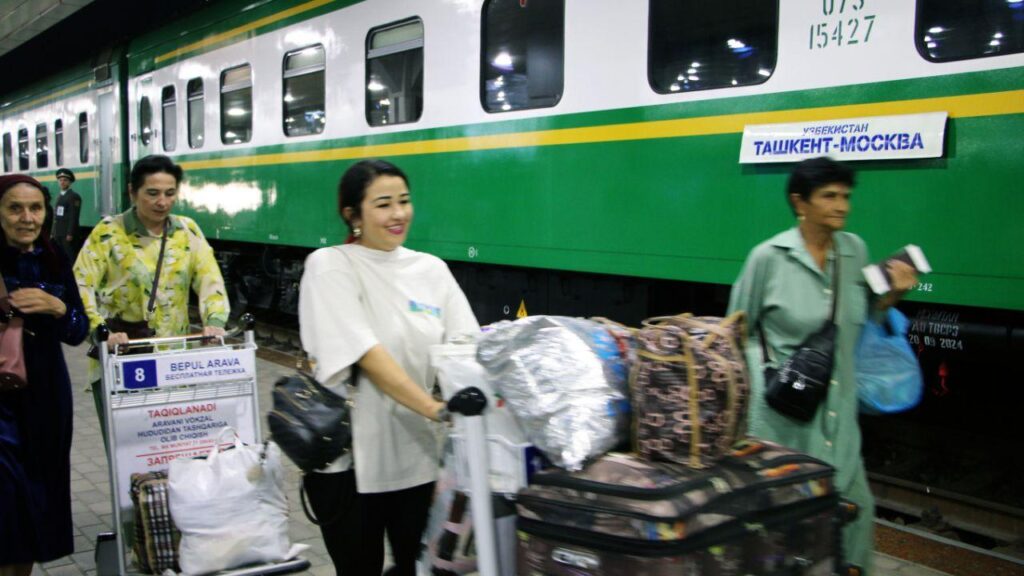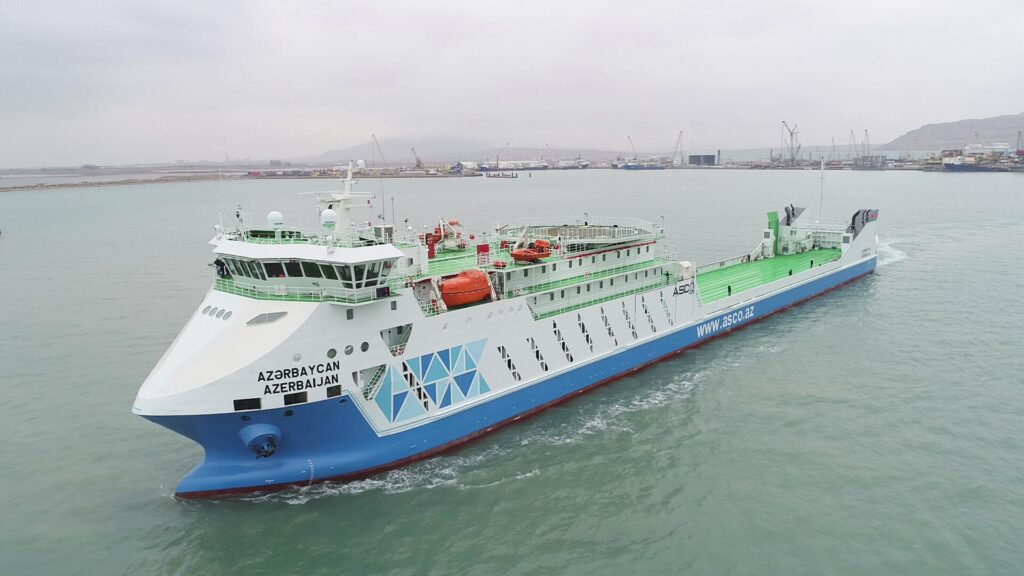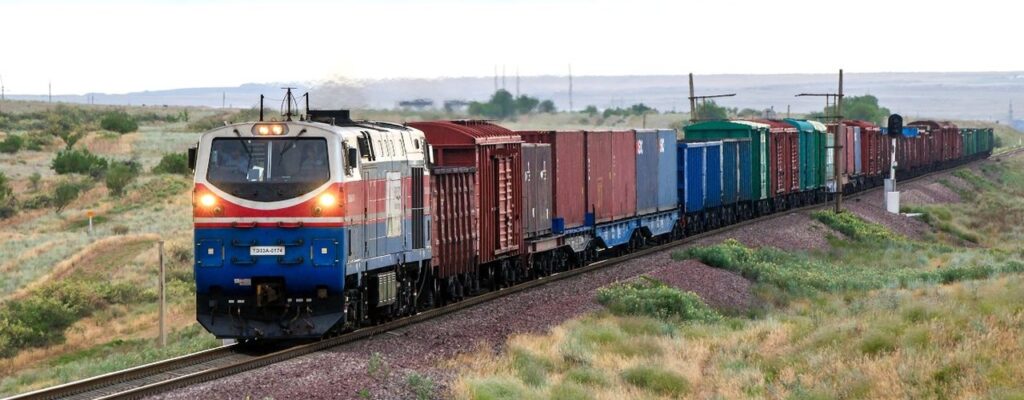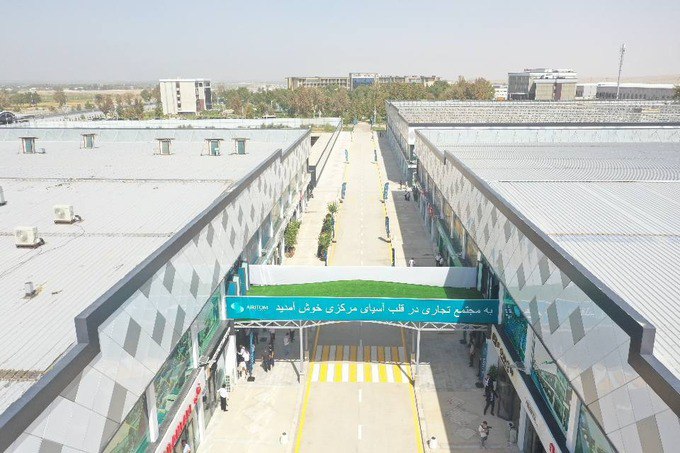ASTANA (TCA) — A presentation of the multimodal transport hub — the ferry complex of the Kuryk port on Kazakhstan’s Caspian coast — was held in Mangystau region on August 11 with the participation of Kazakhstan President Nursultan Nazarbayev. Heads of state bodies, transport and logistics companies of Azerbaijan, Georgia, Turkey, Turkmenistan, Iran, China, Russia, Uzbekistan, Tajikistan, and Kyrgyzstan took part in the event, the press service of Kazakhstan’s national railway company Kazakhstan Temir Zholy reported.
The Chairman of Kazakhstan Temir Zholy Kanat Alpysbaev reported on the construction of the ferry complex of the port of Kuryk.
The port of Kuryk is included in the network of international transport corridors. Railways and highways are connected to a water area of the port. Capacity of the railway-ferry and automobile complex is more than 7 million tons per year. The service infrastructure with the customs service zone of the port will handle vehicles in less than 30-40 minutes, and key objects of the Kuryk port will contribute to the development of terminal and warehouse infrastructure.
Speaking at the event, First Deputy Prime Minister of Uzbekistan Achilbay Ramatov emphasized the importance of cooperation in the revival of the Great Silk Road, development of transportation along the Trans-Caspian Corridor.
The COSCO Deputy Managing Director Sui Jun stressed the success of Kazakhstan’s Nurly Zhol program’s interlinking with China’s One Belt, One Road initiative, which was reflected in specific logistics projects carried out on behalf of the leaders of the two states.
According to the head of Azerbaijan Railways Djavid Gurbanov, the Kuryk port is a technological bridge in the infrastructure of railways of Kazakhstan and Azerbaijan. Transport workers of Azerbaijan cooperate with their Kazakh colleagues in the development of logistics marketing, application of modern multimodal solutions involving rail and sea transport.
During the event, a traffic bridge was opened on the road from the border customs post of Tazhen, a regular container train was sent from the Dry Port “Khorgos-Eastern Gate” towards the port of Kuryk and further along the Trans-Caspian corridor to Italy.
Kazakhstan is taking active actions to develop transcontinental transportation between Europe and Asia. Over the past 10 years, about 30 billion dollars have been invested in transport and logistics infrastructure for the development of the Euro-Asian transport corridors. The implementation of projects for the modernization and construction of new infrastructure continues. Investments by 2020 will amount to more than 8.4 billion dollars. This will additionally give impetus to the trade flows along the Silk Road.
Currently, the delivery by land routes to the markets of Eurasia at a distance of 10 to 12 thousand km is provided within 13-16 days. This stimulates demand for such transportations. Cargo flows through Kazakhstan between Asia and Europe are growing along the railway infrastructure with an annual double increase.
The Trans-Caspian International Transport Corridor is the most important link in the formation of the Eurasian transport system. New railway lines, ensuring the linkage of the infrastructure chain of the East and West of Kazakhstan, have been constructed for the development of the Trans-Caspian Corridor. This is the longest new railroad Zhezkazgan – Beyneu, which linked Kazakhstan’s industrial and raw materials fields with the shortest entrance to the ports in the Caspian Sea, the new railway line Uzen-Bolashak to Turkmenistan and further to the Persian Gulf.
The port of Aktau has been modernized, a new multimodal ferry complex of the Kuryk port has been built, which provides the shortest exit of cargo flows from China, Central Asia, the Ural-Siberian region of Russia to the Trans-Caspian corridor.
Today, the capacity of the ports of the Kazakhstan logistics link in the Caspian Sea is more than 26 million tons per year.
